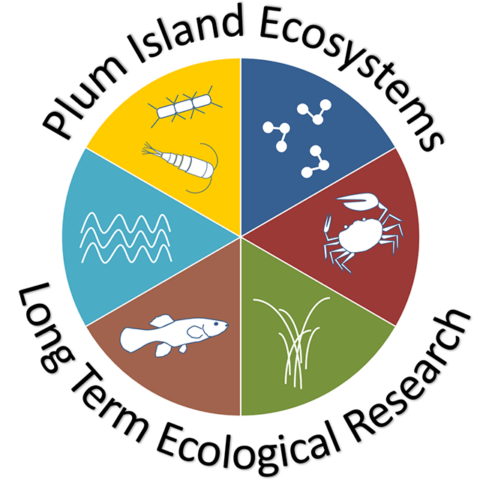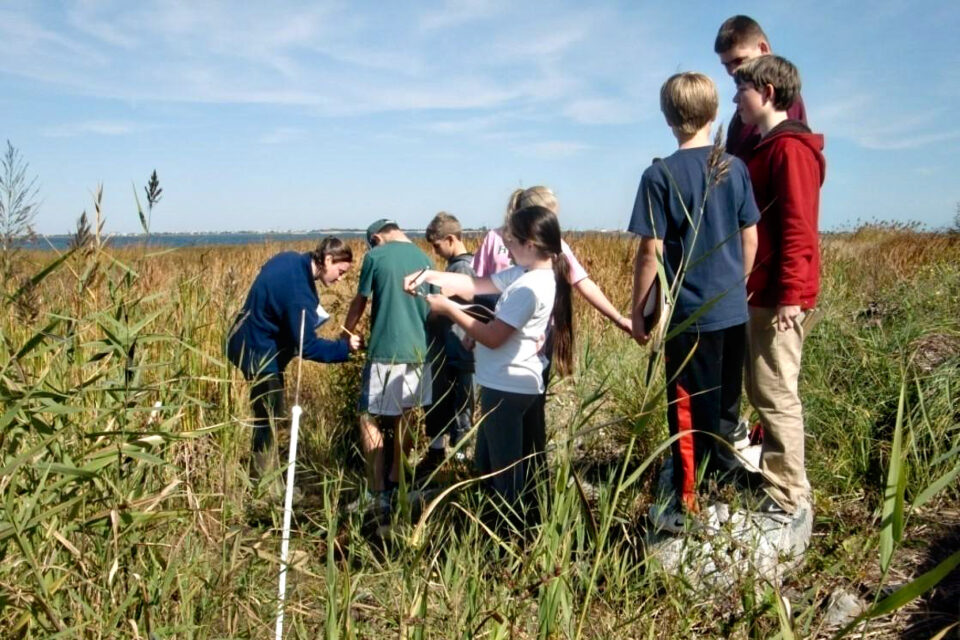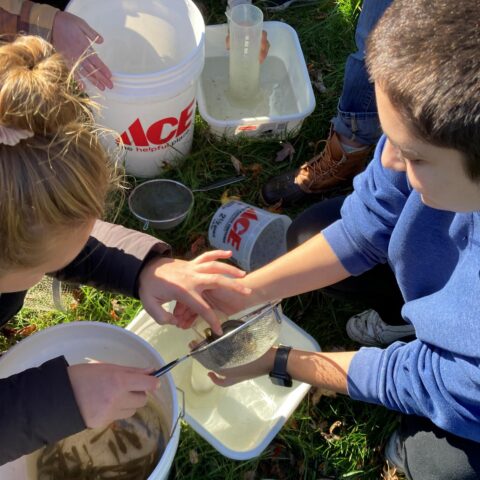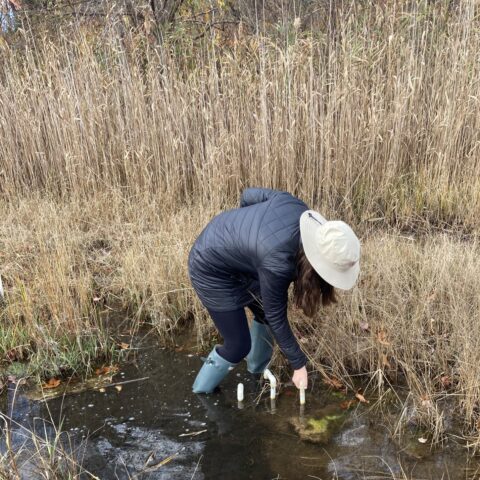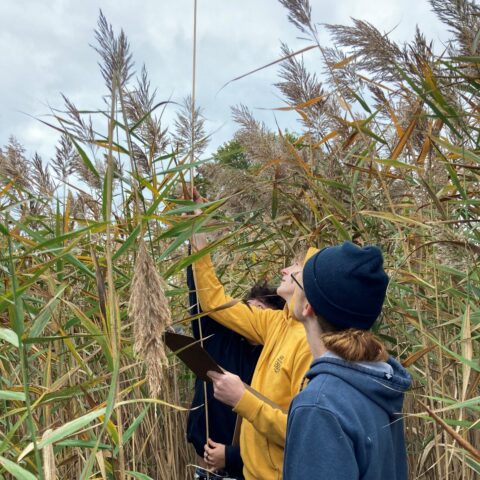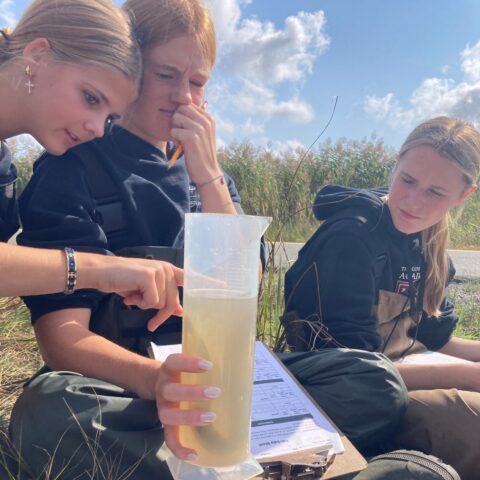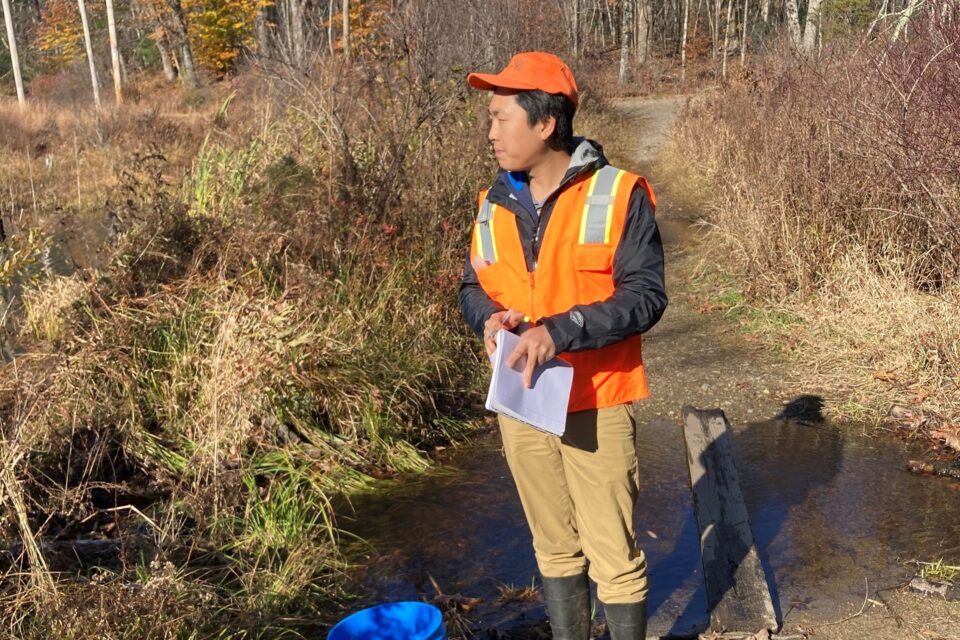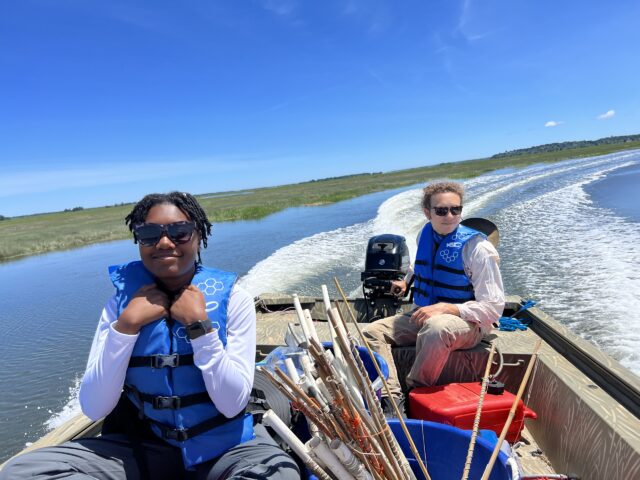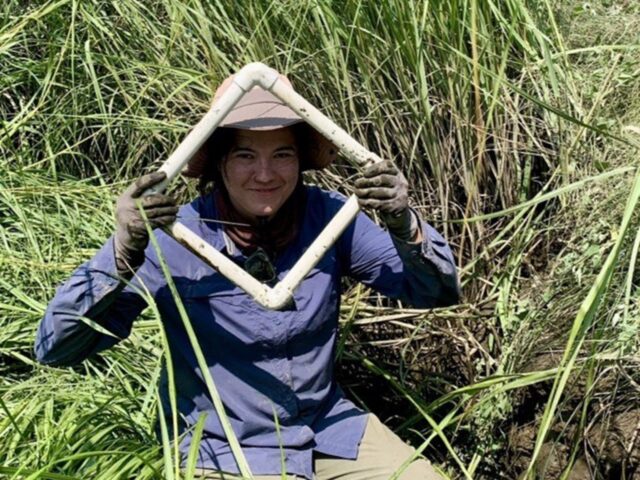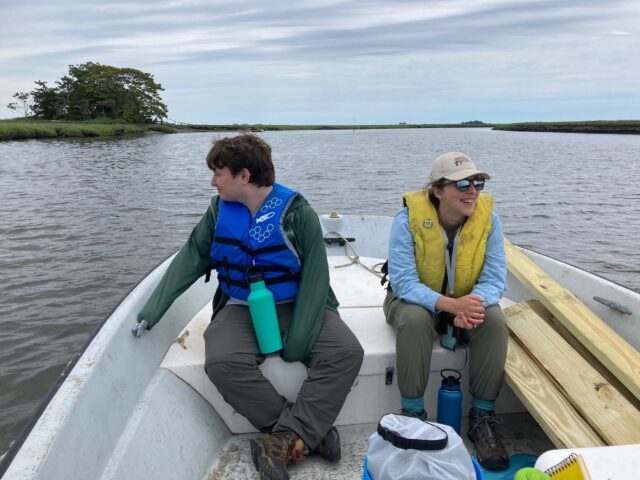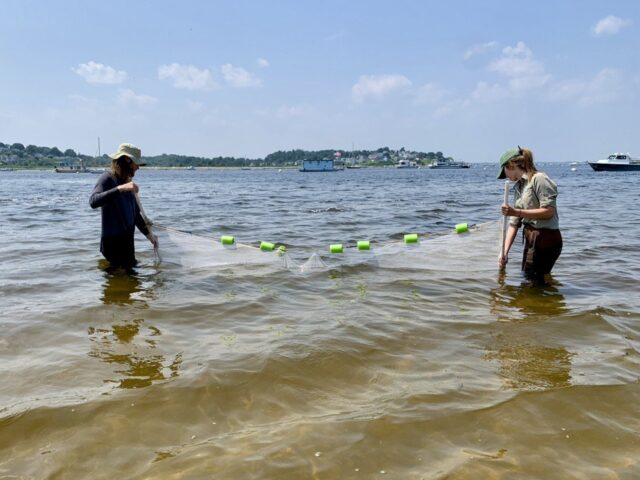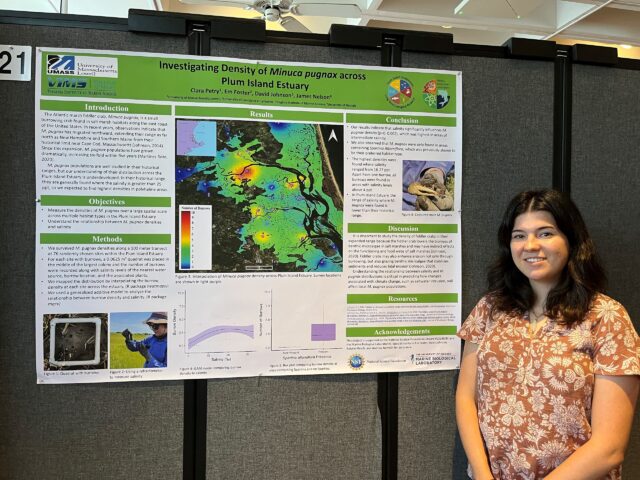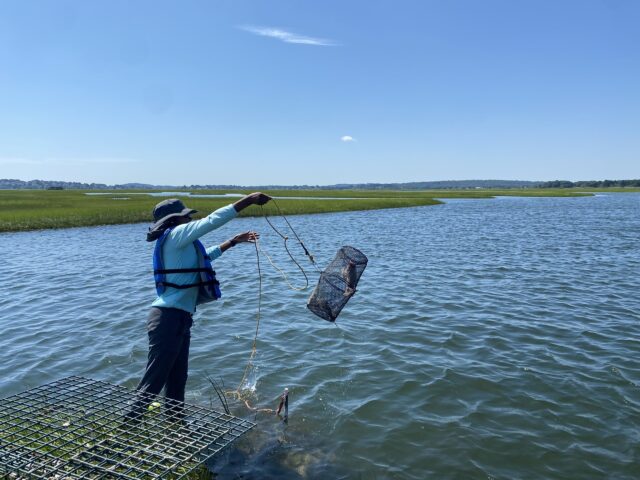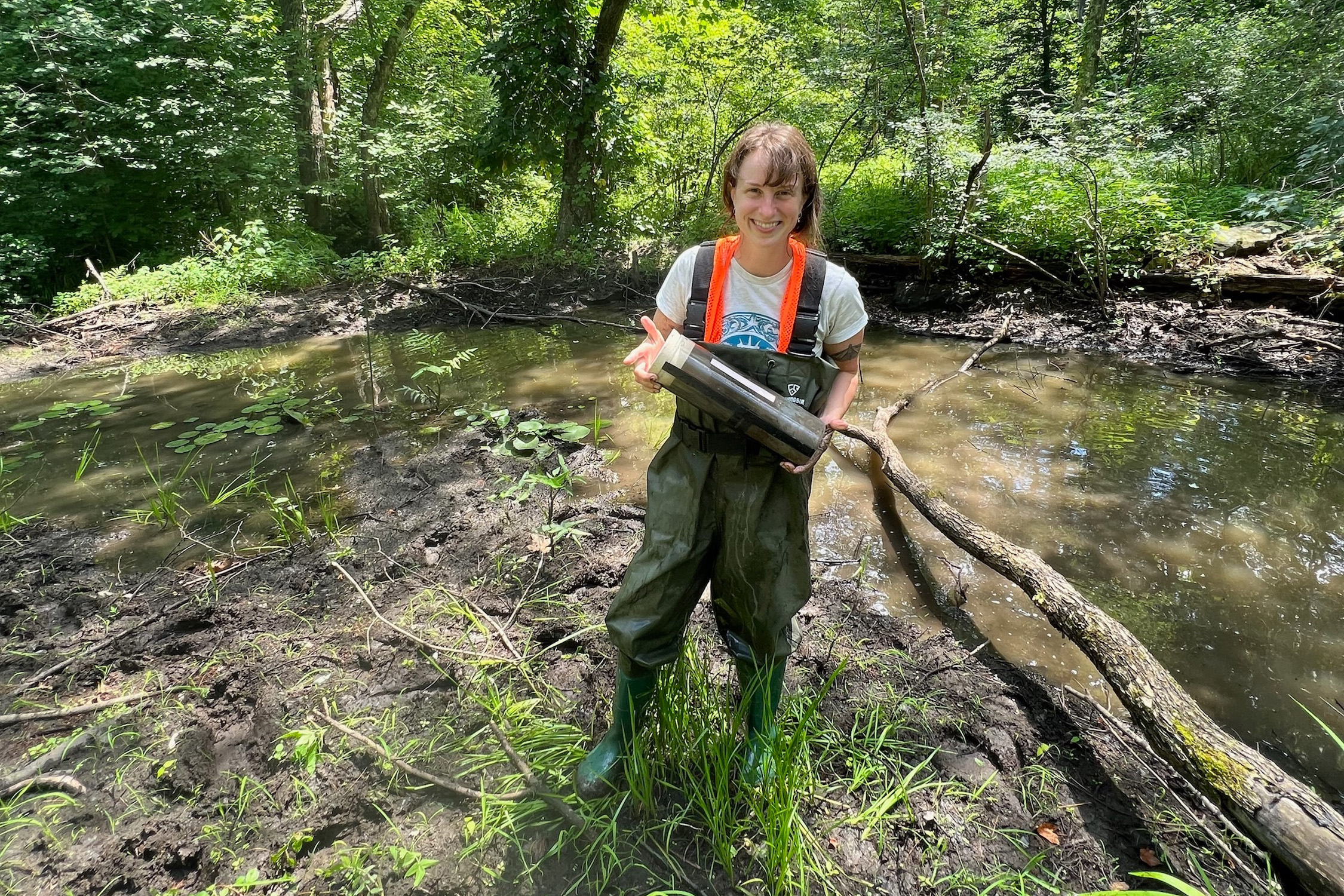The goals of our K-12 program are to 1) excite students and their teachers about science through hands on activities in their own schoolyards, neighborhoods, and local communities; 2) encourage students to consider a career in science; 3) promote environmental stewardship. We collaborate with Mass Audubon and the Gulf of Maine Institute to achieve these goals. Our current K-12 programs reach more than 1,000 students a year. We also have a number of useful resources for K-12 teachers including curricula and books appropriate for K-12. We participate in the LTER Education Digital Library with the objective of developing and contributing to a collection that incorporates LTER research and facilitates the training, teaching, and learning about long-term ecological science.
Salt Marsh Science
Mass Audubon leads the Salt Marsh Science Project on the North Shore, which provides fifteen schools with experiential learning opportunities for students and teachers. The program serves approximately 1,000 students and 50 teachers per year in grades 5-12. Historically, the program had largely focused on examining the changes in salt marsh vegetation due to tidal restrictions and hydrologic restoration. Mass Audubon has added a new climate change focus that will help guide students to understand more of the impacts on their communities while still using the vegetation transects that teachers and students have been sampling for the past 25 years.
In conjunction with the Salt Marsh Science Project, we developed a Salt Marsh Science Curriculum for middle and high school students. The curriculum includes classroom activities, identification sheets, and a dichotomous key for identifying salt marsh plants, and data sheets for salt marsh field trips. These tried and true methods for studying Phragmites, vegetation, fish, and salinity in salt marshes were combined as an "integrated unit" in 1999 by classroom teachers Carmen Ochoa and Amanda Demetri, working with former PIE Education coordinator Liz Duff, utilizing lessons developed by Kristen Grant and the salt marsh science protocols developed by Dr. Robert Buchsbaum and Dr. David Burdick. Danielle Simmons-Disbro is the current director and is working to expand the program to more schools.
Gulf of Maine Institute
We partner with the Gulf of Maine Institute (GOMI), whose mission is to educate and prepare the coming generations to steward wisely the environmental health of the Gulf of Maine region. GOMI works closely with teachers, researchers, and community organizations to empower youth and prepare them to lead as citizen stewards through community-based stewardship. To facilitate hands on activities in a time when classes were disrupted by COVID, GOMI introduced the “Emerald Web”- a habitat sanctuary approach inspired by the work of Dr. Douglas Tallamy. Teachers and students have begun to design and plant habitat sanctuaries on school grounds where they will then collect data. PIE scientists are providing scientific support to GOMI for teachers to develop their in-class programs which emphasizes watershed connectedness through shared data collection activities.
Data Nuggets
In 2015, PIE became involved via our Schoolyard K-12 education program with the Michigan State University NSF sponsored Data Nuggets. Data Nuggets are free classroom activities, co-designed by scientists and teachers, designed to bring contemporary research and authentic data into the classroom. The links below will take you to the Data Nuggets associated with the PIE LTER Schoolyard K-12 education program.
Does Sea Level Rise Harm Saltmarsh Sparrows?
Urbanization and Estuary Eutrophication
Can a Salt Marsh Recover After Restoration?
Can Mudsnails Disrupt a Salt Marsh Foodweb?
Invasive Reeds in the Salt Marsh
K-12 Curricula
PIE has created several curricula for K-12 students, which are available through the links below. The lesson plans guide teachers and students through activities to understand a variety of ecological processes in the marsh.
Inland Fish and Warming Waters
Save Our Stream
“Save Our Stream!” by Colin Polsky and Jane Tucker, illustrated by Julia Miner, is a children’s book published by PIE set in the watershed of a marsh-estuary. The story follows two children as they learn that traditional methods of lawn maintenance may be having detrimental effects on their local stream. They take action to alert the neighborhood homeowners, who begin to make changes that improve the health of the stream. “Save Our Stream!” is part of the LTER Schoolyard Book Series, which is aimed at helping children and their families learn about their local environment through stories based on LTER site research. “Save Our Stream!” is available for purchase at Rowman & Littlefield Publishers.
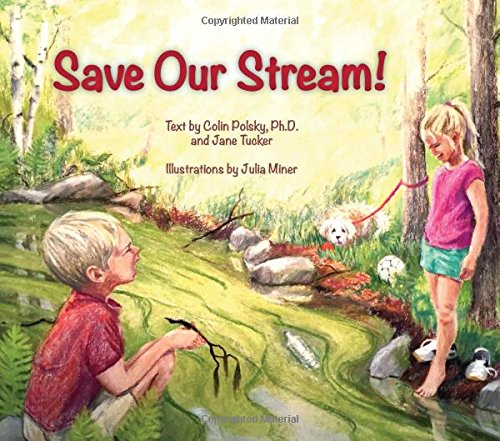
Research Experience for Undergraduates (REU)
PIE offers REU opportunities every summer, which prepare students for graduate work, give expert instruction on a variety of sciences, and promote student driven collaborative research. Undergraduate students from all universities can apply to spend a summer at PIE doing research under the mentoring of PIE scientists. Professional development is available to undergrads during the summer through MBL, and all students have the opportunity to develop their own project and present the results at the end of the summer during a formal symposium. Most students also make a poster to present at their home institution and may continue their research as a student senior thesis working with both PIE scientists and those at their home institution. Two REU internships are available each year and are posted on the Careers at MBL website. Additional REU opportunities may be offered through other universities involved with PIE.
Semester in Environmental Sciences (SES)
The SES program is a semester away program aimed for students interested in an emersion experience in environmental science. During the last 5 weeks of the program students conduct an independent research project. The course includes a field trip to PIE and many students base their projects at PIE. For more information, see the SES website.
Additional Undergraduate Opportunities
We encourage interested undergraduate students to reach out directly to researchers at their university who are affiliated with PIE. There may also be summer research assistant positions available through MBL or other universities. For more information, see our job board.
Graduate
PIE offers a multifaceted community of scientists to help guide graduate students in developing, conducting, and presenting their own research projects. Graduate students may come from a number of institutions closely affiliated with PIE, including University of New Hampshire, Northeastern University, University of South Carolina, University of Massachusetts Boston, University of Massachusetts Lowell, Clark University, Villanova University, and Yale University. PIE LTER graduate students benefit from participating in the PIE community, including networking opportunities, collaboration, and participating in our annual All Scientists Meeting. There are many opportunities available to become a graduate student affiliated with PIE and we welcome relationships with all universities.
Post-graduate
Post-doctoral scientists also benefit from the interdisciplinary community of researchers and research projects at PIE. They have the opportunity to work collaboratively with the whole PIE community and contribute to PIE overarching research goals. Many post-docs gain experience in managing a research project, including planning field and lab activities, making hiring and purchasing decisions, working with a team of research assistants, and overseeing graduate, undergraduate, or high school students.
To view current graduate student and postdoctoral position availability, see our job board, or e-mail a PIE researcher whose interests align with yours.
